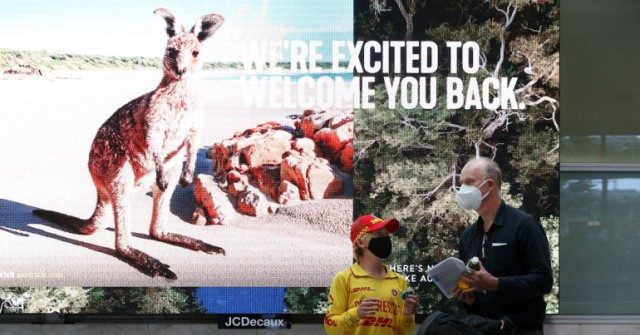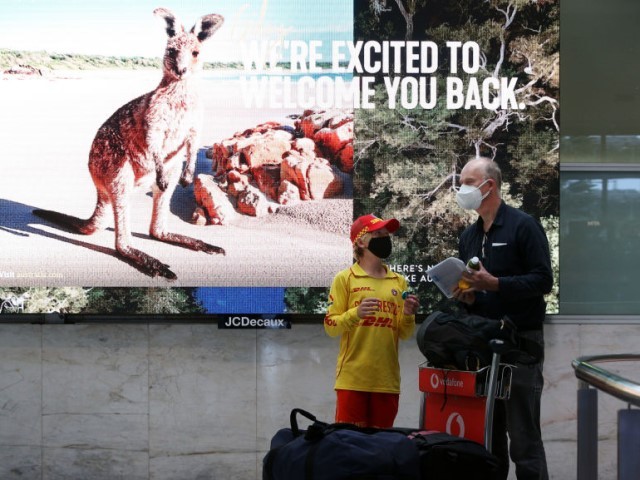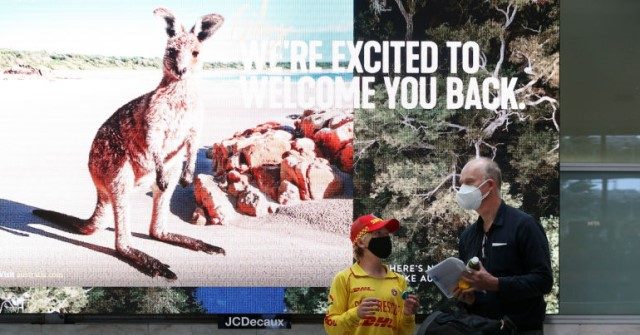



Australian health officials on Friday reported their first confirmed case of monkeypox, diagnosed in a traveler who recently returned from Britain to Melbourne. A possible second case in a Sydney man who recently traveled to Europe is under observation.
Kerry Chant, chief health officer of New South Wales, told reporters both cases were considered mild. The Melbourne man is reportedly in his 30s, while the Sydney patient is in his 40s. The patients and people they have been in close contact with were asked to isolate themselves at home.
Chant said Australian health officials are implementing measures to “identify and manage any monkeypox cases including clinical alerts to doctors and hospitals.”
“Cases are occasionally reported in non-endemic countries in returning travelers or their close contacts, or in owners of imported pets. People can contract monkeypox through very close contact with people who are infected with the virus. The infection is usually a mild illness and most people recover within a few weeks,” she said.
Victoria Deputy Chief Health Officer Deborah Friedman suggested monkeypox testing for all travelers with relevant symptoms, which include fever, headaches, and highly visible rashes that begin on the victim’s face and spread across the body.
Monkeypox cases have been reported in the United States, Canada, Belgium, France, Germany, Italy, Sweden, Spain, and Portugal.
The virus, a form of smallpox, is most commonly encountered in Africa, especially the Congo region and Nigeria. The Democratic Republic of Congo logs a few thousand cases of human infection every year, usually caused by bites and scratches from infected monkeys or by eating infected meat. The West African strain of monkeypox is regarded as less serious than the Congo Basin strain.
The suspected American cases were detected in Massachusetts and New York City on Wednesday and Thursday. The Massachusetts patient recently traveled to Canada, where a cluster of over a dozen cases is being tracked around Montreal.
The virus is considered rare, relatively mild, and not highly contagious among humans, which makes the intercontinental spread of the current outbreak a little puzzling. Transmission between humans is believed to occur through respiratory droplets and body fluids, including secretions from the sores caused by the virus. Monkeypox can also spread between humans through sexual contact.
“This is the most important outbreak in the history of monkeypox in the Western Hemisphere,” UCLA epidemiology professor Anne Rimoin told NBC News on Thursday.
“What we’re facing right now seems to be at least a subset of cases that don’t have any history of travel to one of those countries in Africa where the monkeypox virus naturally occurs, and also don’t report any exposure to someone who has been diagnosed with monkeypox. So what we’re seeing right now is unusual,” said Dr. Agam Rao of the U.S. Centers for Disease Control (CDC).
“We are telling people this is an emerging issue. Some emerging issues end up becoming benign in the end. Other ones escalate. As an emerging issue, we’re asking people to keep it top of mind at the moment,” said Rao.
Former Food and Drug Administration (FDA) Commissioner Scott Gottlieb told CNBC on Friday that monkeypox is unlikely to become a “major epidemic” like Chinese coronavirus because “this is a virus that’s difficult to spread.”
However, Gottlieb added that monkeypox has a long incubation period during which it is difficult to detect, so countries outside of Africa could be facing “low-level persistent spread” and pop-up “outbreaks.”
Gottlieb noted monkeypox is only fatal in one to four percent of cases, but it can be a “disabling” illness whose effects linger for two to four months.





